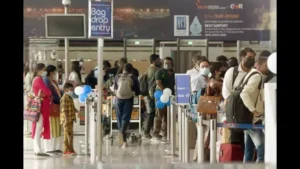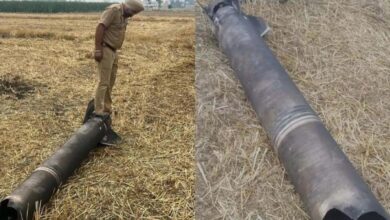97 Flights Cancelled and 150 Delayed at Delhi Airport
Most cancellations are domestic flights, with 44 arrivals and 52 departures affected at Delhi Airport


Delhi Airport Faces Serious Disruptions Amid Regional Security Anxieties
Indira Gandhi International (IGI) Airport in Delhi suffered major disruptions on Sunday, with at least 97 flights cancelled and more than 150 delayed. The disruptions are mainly due to the security precautions that are currently in place following the shutdown of 32 airports in western and northern India as a result of hostilities with Pakistan. Despite an agreement reached on Saturday to cease all military action, the impact on air travel persists.
A majority of the cancellations—96 out of 97—were domestic flights, 44 arrivals and 52 departures. The only international flight cancelled was a flight to Tel Aviv, Israel (AI-139). Airport officials said the cancellations and delays are a reflection of increased security measures and operational issues due to the regional tensions.
Flight tracking information provided by FlightRadar shows that, on the same day, more than 150 flights were delayed with an average delay of about 15 minutes. The previous day tallied 60 cancellations and over 200 delays, revealing the continued turbulence in air traffic amid the security situation.
Domestic airport cut-offs primarily affected Indian airports based in northern, northwestern, and western sectors, especially those along the Pakistani border. The shutdown is to go on until May 14, 2025, according to an announcement made by the Directorate General of Civil Aviation (DGCA), to target airports across various areas of Punjab, Himachal Pradesh, and part of Rajasthan. More importantly, however, is the fact that Delhi remains northwest India’s biggest running airport with airports in cities next door to some like Dehradun, Lucknow, and Jaipur being operational.
Security at Delhi Airport has been increased, with extra checks being introduced for all travelers. Airlines have asked passengers to report at least three hours prior to travel to allow the extra security measures. The Bureau of Civil Aviation Security (BCAS) gave instructions to enhance security measures like secondary ladder point checks (SLPC), extra vehicle and passenger checks outside terminals, and curbs on visitor entry into terminals.
The Central Industrial Security Force (CISF), which provides airport security, has acted quickly to these directives. CISF officials have stepped up control over cargo and baggage operations, including the deployment of the In-line Hold Baggage Screening System (ILHBSS). Ajay Dahiya, Deputy Inspector General and Chief PRO of CISF, said the force is carrying out random checks and manning entry points at sensitive facilities to ensure security.
Meanwhile, Delhi Airport remains business as usual, although the latest security arrangements and airspace realignments will impact flight length and delay in processing at security checkpoint stations, authorities admit. Authorities remain vigilant nonetheless, attaching importance to security and protecting passengers in these times of increased vigilance.
As tensions at the regional level continue, travelers are urged to remain informed on flight schedules and security warnings, with airlines calling for early arrivals to allow for extra screening procedures. The developing situation highlights the fine balance between ensuring security and allowing for smooth air travel in a highly unstable geopolitical climate.






